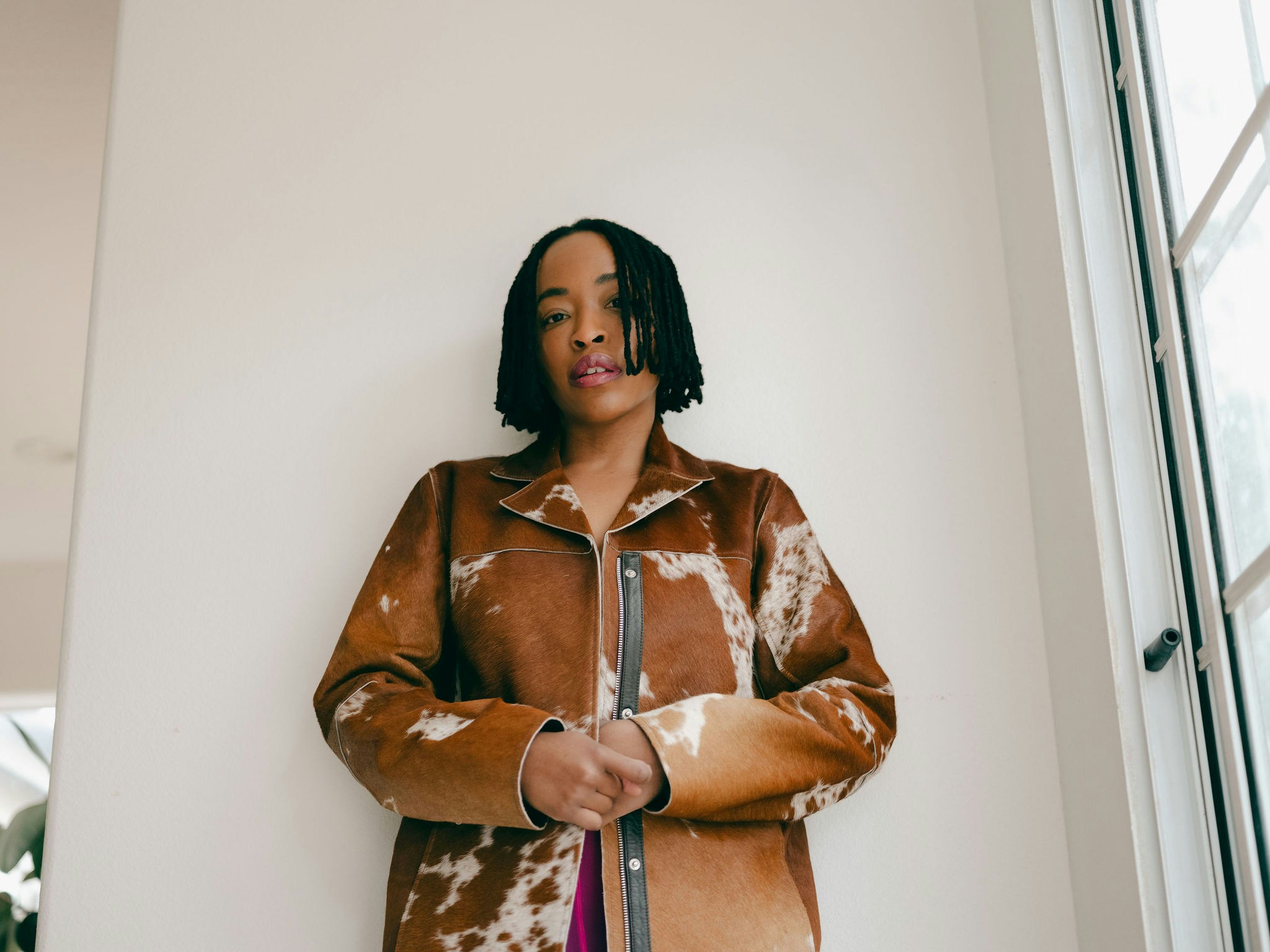
Getting Sticky With Erica Chidi
Too often, motherhood gets treated like a throwaway experience. Something “normal” and “basic” that happens to a lot of us. And as a result, it’s rare to sit in the thick of it and reflect: How will my own childhood spill over into this experience? How will this impact my sex life? What about my poor nipples? Am I even ready??? These are the kinds of questions Erica Chidi wants us to ask, not in hushed tones but out loud and together.
Erica’s work has always been about holding space—minus the fearmongering or unsolicited advice. Whether it’s co-founding LOOM, a women's health app (acquired by Perelel Health in 2024), or gently guiding readers through Soft Boundaries, her Substack newsletter filled with personal essays and tender advice on embodiment, identity, and navigating our inner worlds, Erica’s focus is creating soft places to land.
Since the acquisition, Erica’s work has blossomed into new forms. Through her creative studio ISE ISE, she now consults for Nike, Rhode, and Bobbie, and is developing television projects that surface untold stories about women and the body. She’s also one of our trusted strategic advisors.
At the heart of everything she does is the belief that storytelling is our most powerful tool—for care, advocacy, and understanding. Mothers—and all women navigating transitions—need voices like hers, both physically and emotionally.
Below, she talks about her path to becoming a doula, the concept of biological empathy, and why beginning sentences with “this worked for me” will always land better than “you should.”
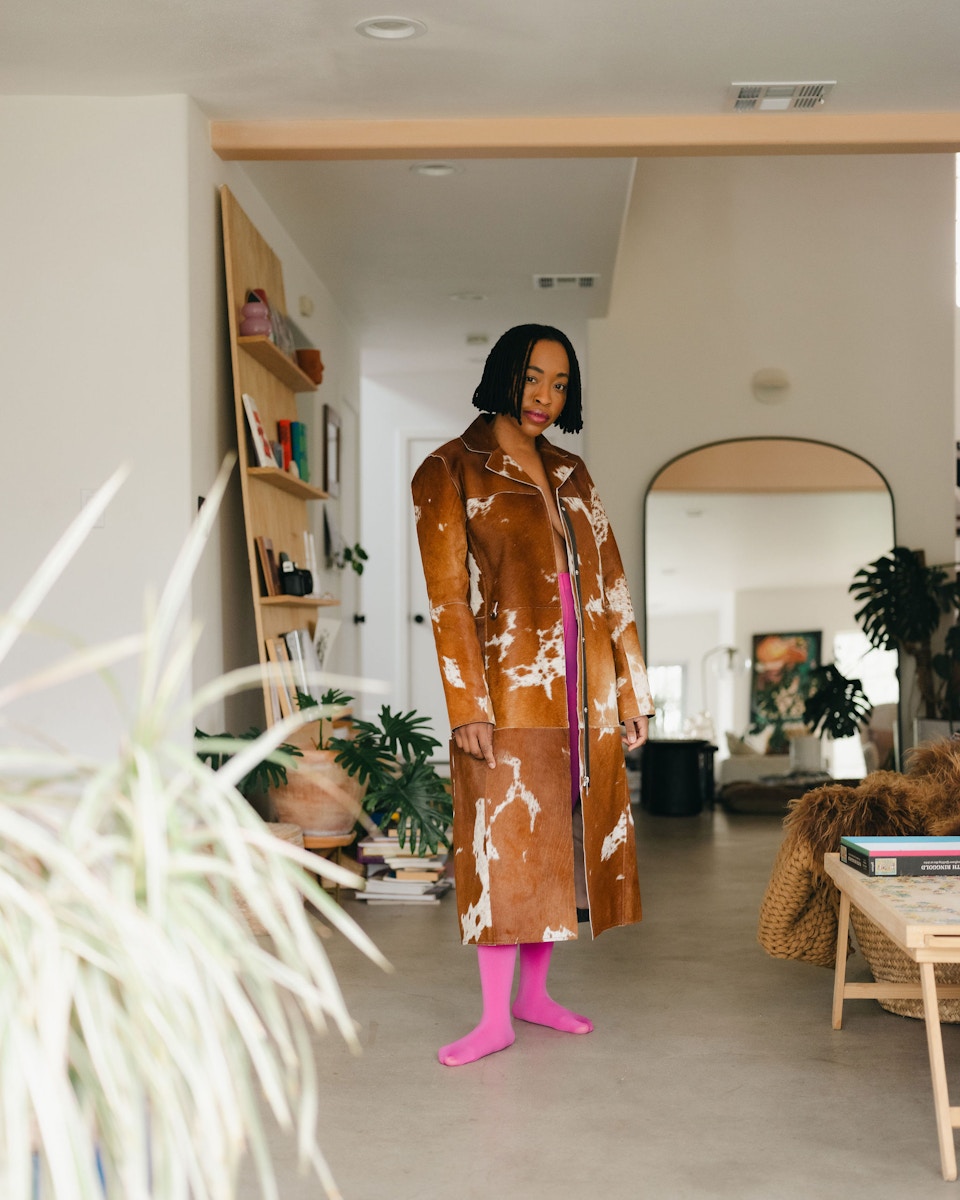
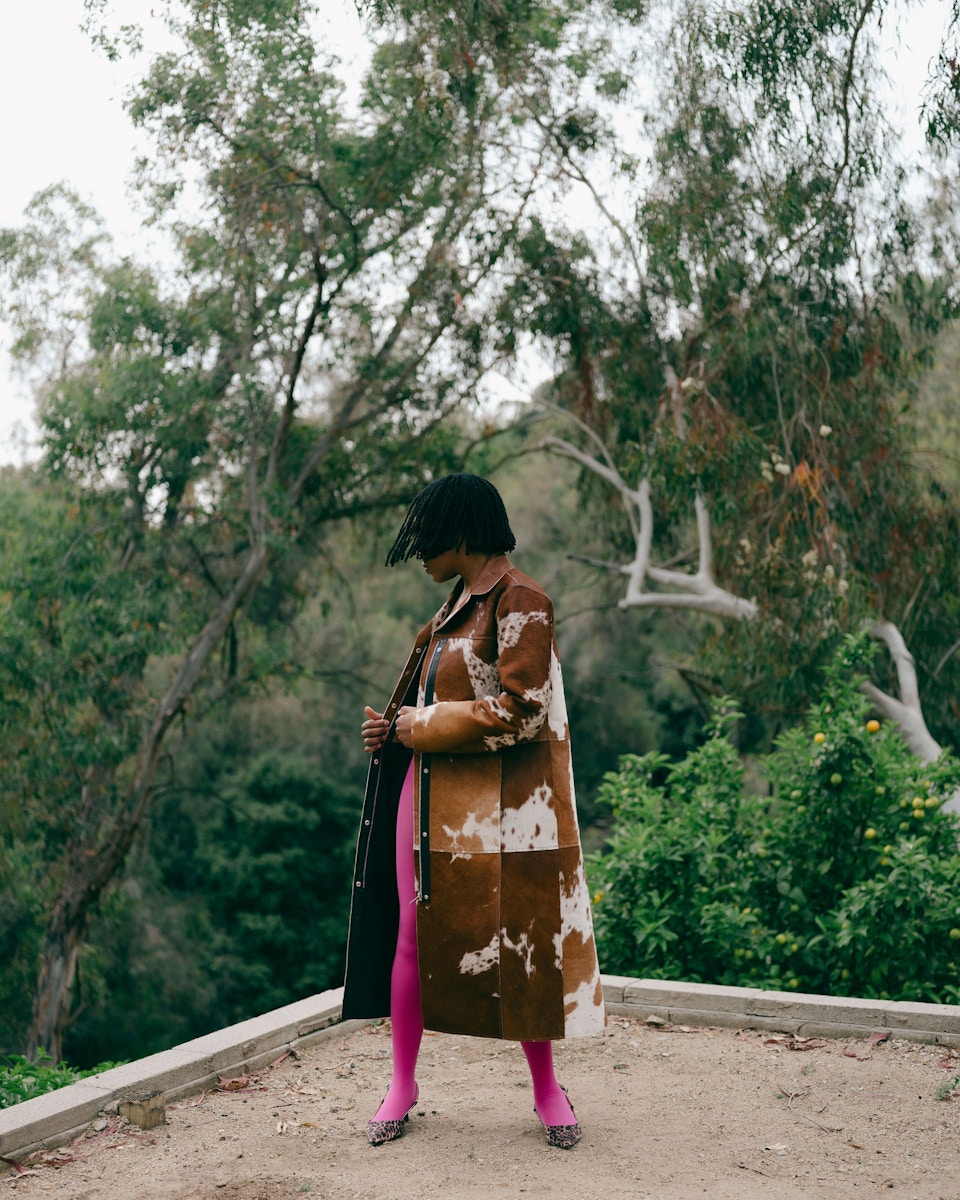
Curiosity did not kill the cat
My algorithm for life is to go where it's warm and to investigate all curiosities. I think that's why I've always been the person that people come to with questions about their bodies.
My parents are both medical professionals, so I grew up lexicon for my own body and was very comfortable sharing that with others. Embodiment or talking about the body has always been warm.
The doula piece of it started with a curiosity around midwifery. And when I discovered what doulas were, I fell in love with the idea because of the psychosocial, psychoeducational role they can provide. It’s less focused on clinical or physiological components. It just suited me. It’s all about helping people tell the stories of their bodies.
Which naturally evolved into opening a brick-and-mortar space that was focused on health education and community for women, changing or reimagining what it’s like to learn about your body.
Biological empathy. Know it, understand it, live by it.
It makes me really happy when people tell me my work has helped them. It’s beautiful. I feel grateful that if, for whatever reason, I were no longer here, my work would live on. That’s one of the most powerful things we can do as human beings: leave behind something that continues to help others even when we’re not physically present. I’m grateful I was given the opportunity to create a body of work that has made its way into the culture and offered support.
Being a childless doula has been a really interesting and, honestly, important part of my career. I have a term I use: biological empathy. It’s the idea of: What would it be like if everyone had enough sexual and reproductive health information to cultivate empathy for the biological events women go through?

"As someone without children, I’ve always felt a responsibility to support those who do. That’s the communal aspect. If I don’t have the pressures of parenting, I can offer frameworks, care, and support, because I know how hard that space and time is."
As someone without children, I’ve always felt a responsibility to support those who do. That’s the communal aspect. If I don’t have the pressures of parenting, I can offer frameworks, care, and support, because I know how hard that space and time is.
I also think that if I had children, I might not have had the time to do the work I’ve done. If I’d gotten pregnant at 23, I don’t know what my path would’ve looked like. Parenthood done the way I’d want to do it is all-consuming. I wouldn’t want to split my time. I’d want to be fully present for those first five or six years. And if I had done that, none of the work I’ve put into the world would exist. That’s just the truth for me.
I do think about motherhood for myself. But given everything I’ve been through, I still identify as someone who is exquisitely selfish. I don’t mean that negatively. I’m simply not ready to give up the vacuity of my current life. I’m in love with the space I have and what it allows me. I feel held there. There will be a time when that’s no longer true but I’m not sure when.
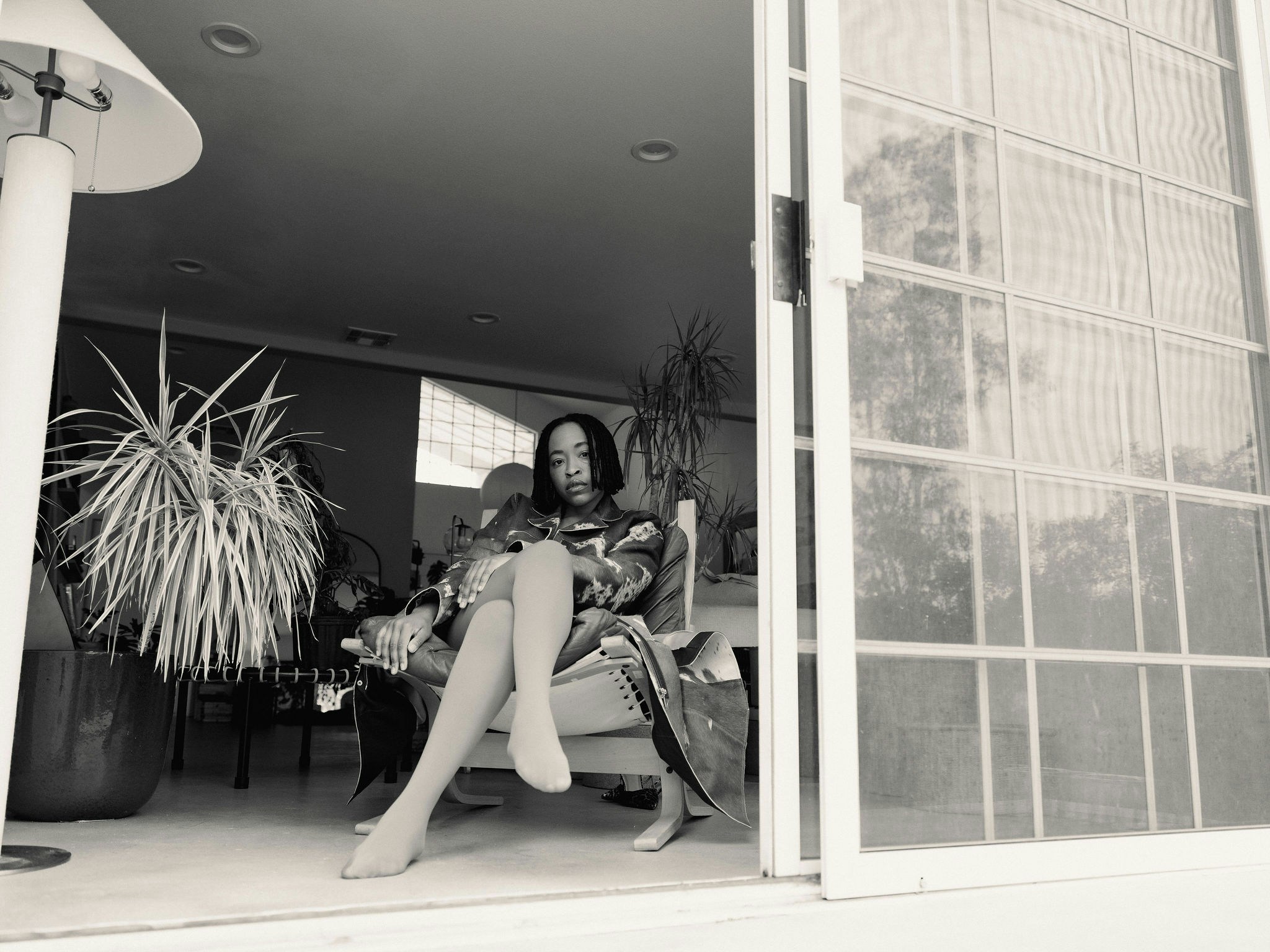
"I do think about motherhood for myself. But given everything I’ve been through, I still identify as someone who is exquisitely selfish. I don’t mean that negatively. I’m simply not ready to give up the vacuity of my current life. I’m in love with the space I have and what it allows me. I feel held there. There will be a time when that’s no longer true but I’m not sure when."

So tell me… how does that make you feel?
Maternal ambivalence absolutely needs to be normalized because most women don’t know how they feel when they first get pregnant, especially since so many pregnancies are unplanned.
In certain demographics, like Spread The Jelly readers for example, pregnancies may be more often planned due to age, life stage, or career orientation. But when you zoom out, the reality is different for a lot of people. That’s why, for years now, I’ve stopped saying “congratulations” when someone tells me they’re pregnant. I ask: How do you feel about it?
That question opens space for a different kind of dialogue. A more honest, autonomous conversation. Ambivalence, fear, those emotions often show up in the early weeks of pregnancy. It’s important to let them cycle. There’s nothing to feel guilty about.
In the U.S., maternal ambivalence is especially valid. I don’t know how it translates globally, but in countries where birth is more protected—where there’s midwifery care, low C-section rates, robust parental leave—the experience might be less fraught. There’s less fear because the infrastructure exists to support you.
But in the U.S. women are often asking: How am I going to do this? How much money do I need to make? There’s a fiduciary weight. And on top of that, there’s the cultural truth that American society does not care about women or moms. So it makes perfect sense to feel ambivalent, at least at the beginning.
And when we allow that truth to be spoken, we shift the dialogue toward empathy, toward seeing pregnant people not as tropes or milestones—but as whole, complex humans in process.

"And when we allow that truth to be spoken, we shift the dialogue toward empathy, toward seeing pregnant people not as tropes or milestones—but as whole, complex humans in process."
Milestones: for your child, for you
For many people, moments of deep grief can arise as their child hits milestones, especially if those were the same ages when major ruptures or traumas occurred in their own lives. You see how young and innocent your child is, and it becomes clear how violated or unsupported you were at that same age. That realization can be painful but it’s also an invitation. Write it down. Voice it. Be with it. You don’t have to push it away.
And if you’re not parenting solo, it’s a great opportunity to talk about it with your partner. If your parent, especially your mother, is still alive and you feel ready, you might even raise them with her. You might say, Now that my child is five, I feel even more X about Y that happened.
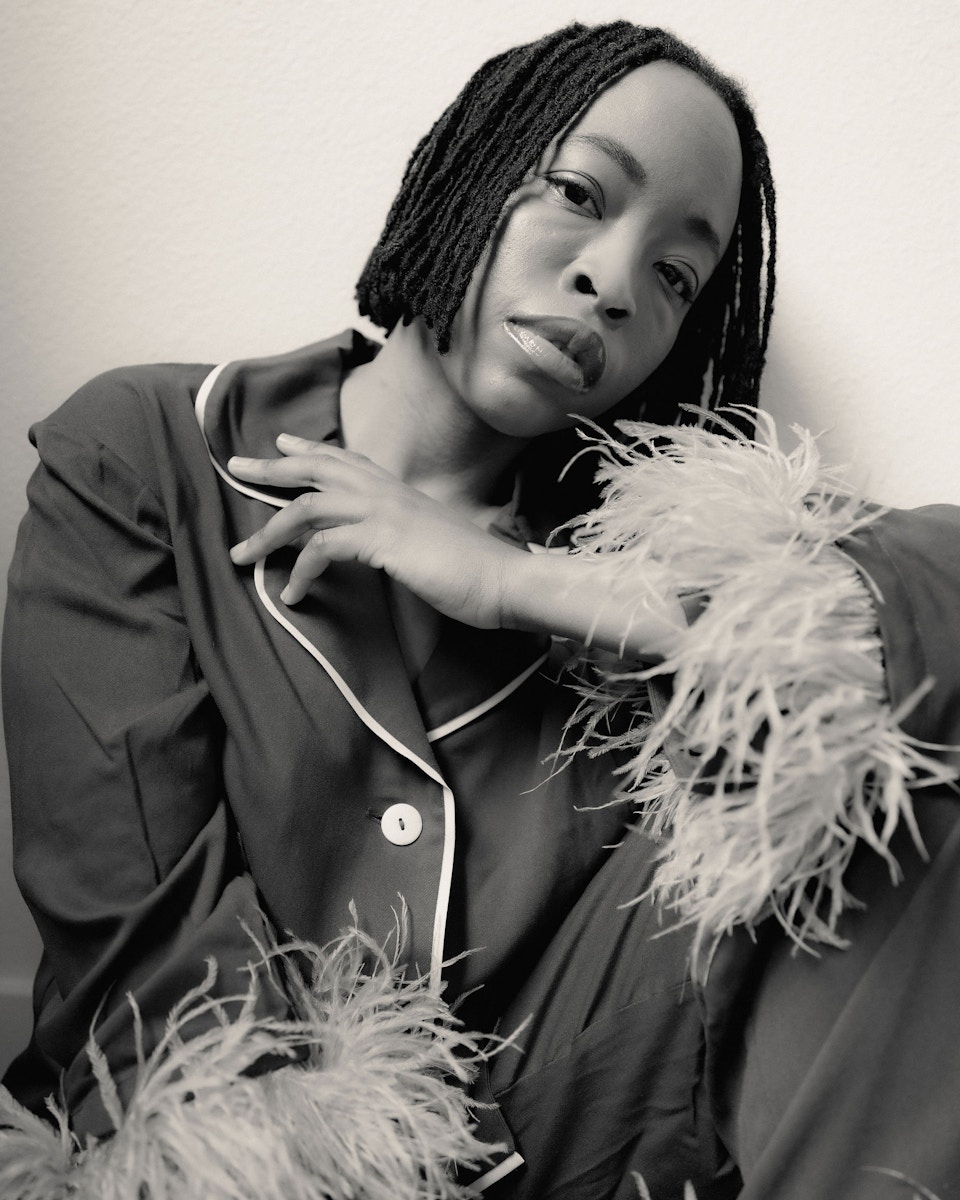
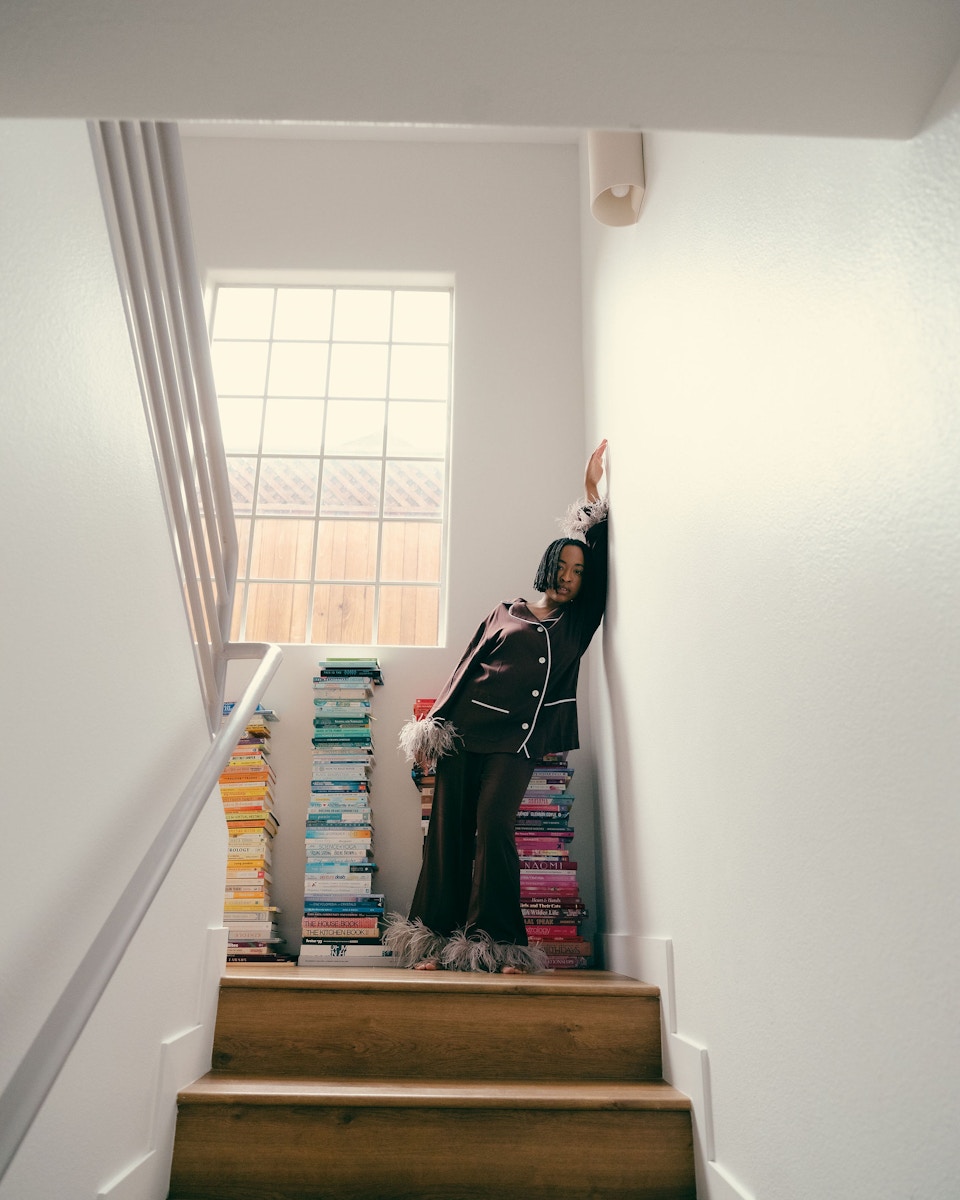

"Ambivalence, fear, those emotions often show up in the early weeks of pregnancy. It’s important to let them cycle. There’s nothing to feel guilty about."

Let’s talk about sex
Being a parent and still being a sexual person needs to be supported and celebrated. That said, we’re still stuck in a culture where parenting and sexuality are at odds. There are very few examples of how those two things coexist. We need more of that, on our screens and in our lives.
It’s really important to remember your body and remember that it has sexual needs and desires. And it’s also important to understand that in the first year after having a baby, it’s totally normal to not have much desire. And by desire, I mean the mental preoccupation or thinking about having sex, because your brain is focused on how to keep your child alive.
It’s also normal to experience very little arousal. Your nipples may not get hard, your vagina may not get wet. If you’ve decided to breastfeed, those hormones can suppress the hormones responsible for arousal even when desire is present. Oh, and if that's the case, please don't be afraid to use lube. My go to is Necessaire’s The Sex Gel.
I like to encourage people to speak openly and talk about sex. When I used to teach our childbirth education class at LOOM and trained our educators, I always emphasized setting realistic expectations for postpartum sex. That included talking about how breastfeeding can impact sexual function and what that might look like.
There’s often a sexual fast, and the desire to break it might show up or it might not. And it’s up to you to keep that sexual part of yourself alive internally and to fight for it. Ideally, the partner you’re with is able to go on that journey with you. But that’s not everyone’s story. Ultimately, it’s about understanding your body and advocating for your needs. And being open about that.
Please don’t tell me what to do, thank you
The more you know about your body, the more you're able to share. That said, your experiences are not always going to apply to everyone. When you're sharing something—whether it’s about breastfeeding or sex after birth—start with: I can only speak for myself, but here’s what worked for me. Maybe it’ll work for you, maybe not. Try to avoid leading with You should… because that closes the conversation down. We want to create space for communal conversation, not impose a single experience. That’s the key. Making sure you're not just venting or imposing, but inviting connection.
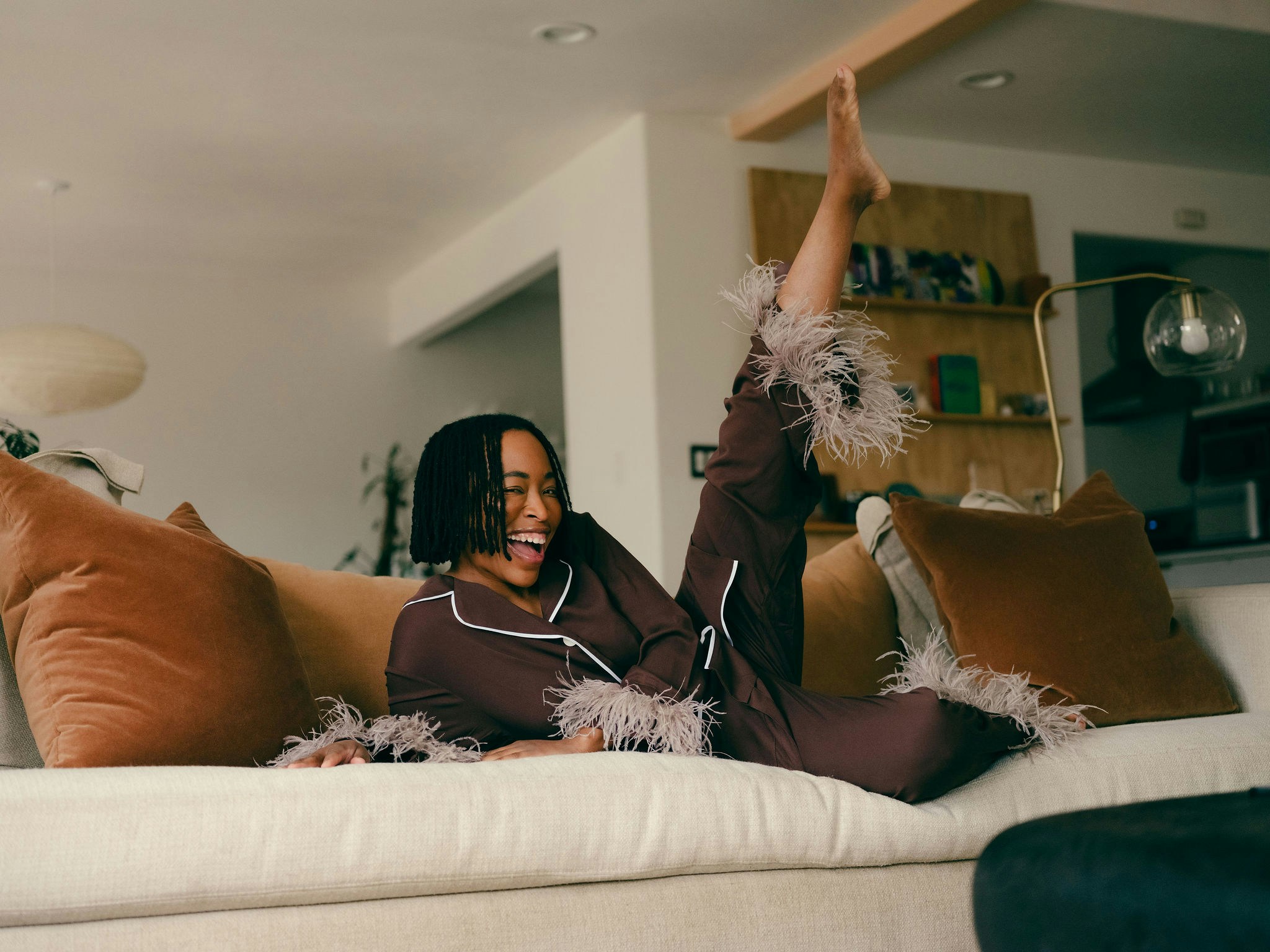

"It’s really important to remember your body and remember that it has sexual needs and desires. And it’s also important to understand that in the first year after having a baby, it’s totally normal to not have much desire. And by desire, I mean the mental preoccupation or thinking about having sex, because your brain is focused on how to keep your child alive."
Reflection doesn’t have an expiration date
Not everybody is going to have the capacity to process maternal trauma or “mother hunger” before having a child. A lot of pregnancies are unplanned so it’s not always something people have the luxury of preparing for.
If you do have the opportunity to plan ahead for becoming a parent, I recommend doing some inner inventory. Ask yourself: What are you ambivalent about? What are you still in pain over? What would you need to soothe that pain? Is it something you can actually get, or is it something you have to give to yourself? That’s a very simple but powerful place to start.
One of the questions I recently answered in the Soft Boundaries advice column was essentially: Is parenthood for me? It touched on a lot of deeper issues that map onto why many of our mothers struggled and how many of those struggles still haven’t been solved today. Coming to that kind of inner work with an understanding of your mother’s humanity and circumstances is really important.
And if you don’t have time to do this work before having a child, it’s still available to you afterward. It might take time, but it’s there. As long as you’re aware of what you didn’t receive, what you wish you had, and make that awareness central to your parenting. That in itself can be a form of healing. You start to understand what it means to be the ages you once were.
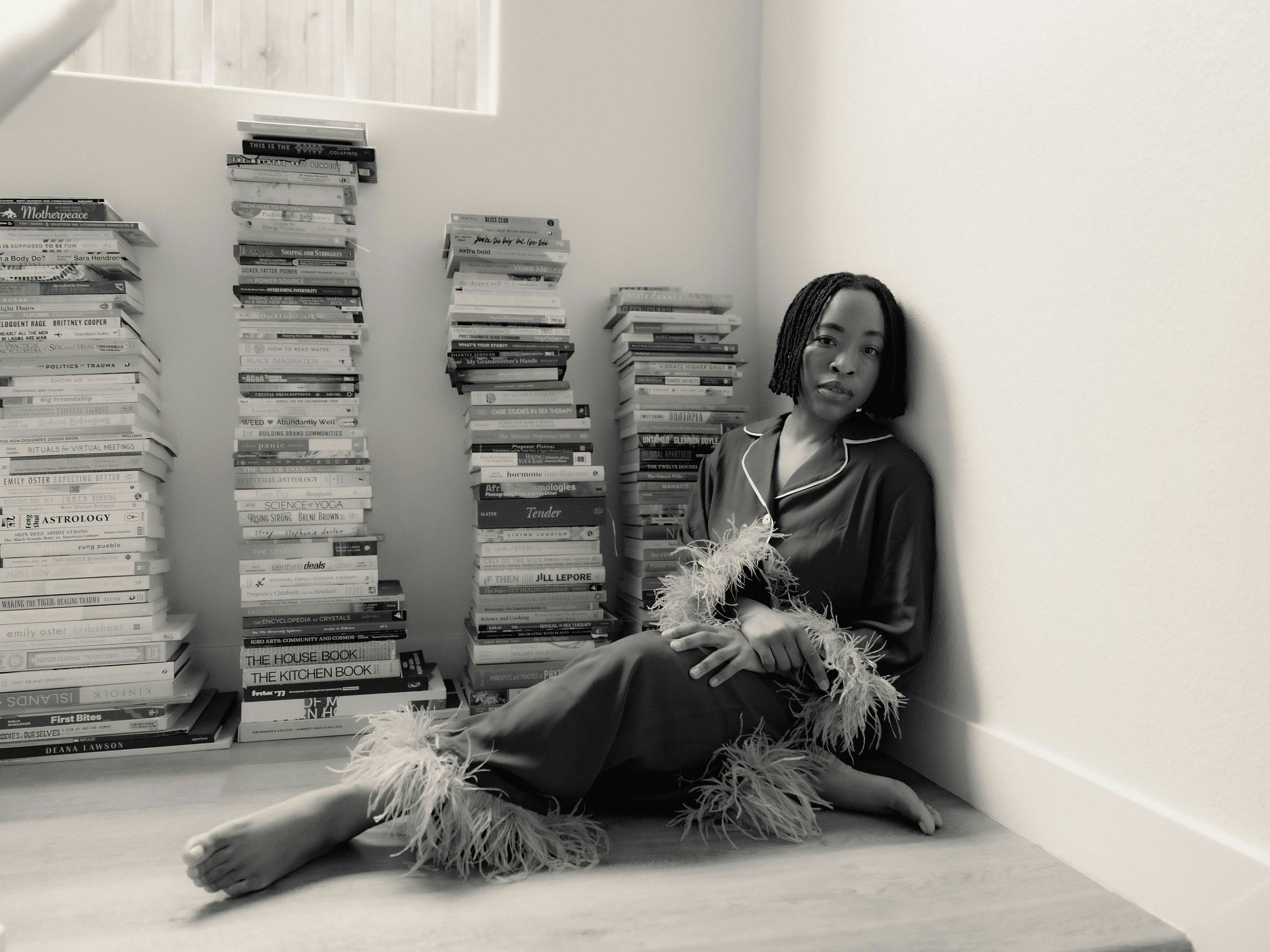
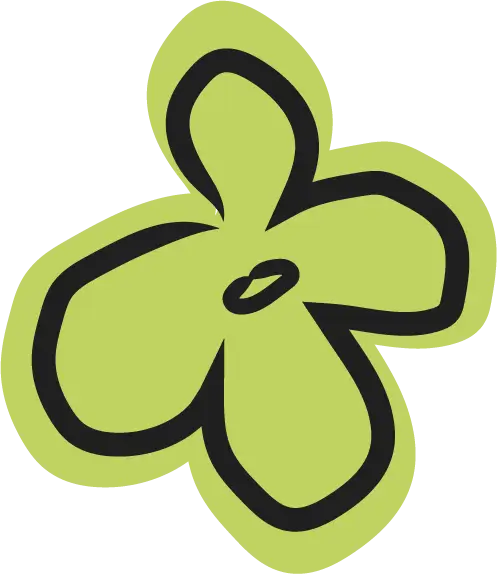
"The more you know about your body, the more you're able to share. That said, your experiences are not always going to apply to everyone. When you're sharing something—whether it’s about breastfeeding or sex after birth—start with: I can only speak for myself, but here’s what worked for me. Maybe it’ll work for you, maybe not. Try to avoid leading with You should… because that closes the conversation down."

Setting a soft boundary
Soft Boundaries is definitely my new baby that I’m excited to tend to and take care of. It allows me to freely do what I love most: storytelling and educating.
It’s very personal. For many years, because I was public-facing—whether it was raising capital or running the business—there really wasn’t a lot of room for me to share intimately about what I was moving through and what helped me survive. Soft Boundaries was born out of a desire to be more vulnerable and more visible about what my lived experience is truly like.
At the same time, as the name suggests, I’m still holding a boundary. I’m sharing, but with discernment and the desire to help others to do their own inner work and self-exploration. My goal is to pour the same energy into Soft Boundaries that I poured into LOOM, my book, my new creative studio and every venture I’ve taken on.
I’m currently working on my first in person Soft Boundaries experience, which will be a workshop for Let It Break started by Savannah James, April McDaniel, and Porsha Ellis, focused on empowering women through personal growth and self-discovery.
This workshop is going to be all about learning how to live in a softer body. Outside of workshops, another thing I want to do is to curate a destination retreat experience. I love bringing people together in real life and watching the alchemy that comes from that. So there’s Soft Boundaries, the writing; Soft Sessions, the workshops; and The Softest Escape, the retreat. I’m hoping to slowly bring those things to life, in parallel with everything else that's blossoming in my life right now. I can't remember a time where I felt more embodied or creative which is giving me the strength to keep showing up amidst all the chaos and heartache that's surrounding us all right now.